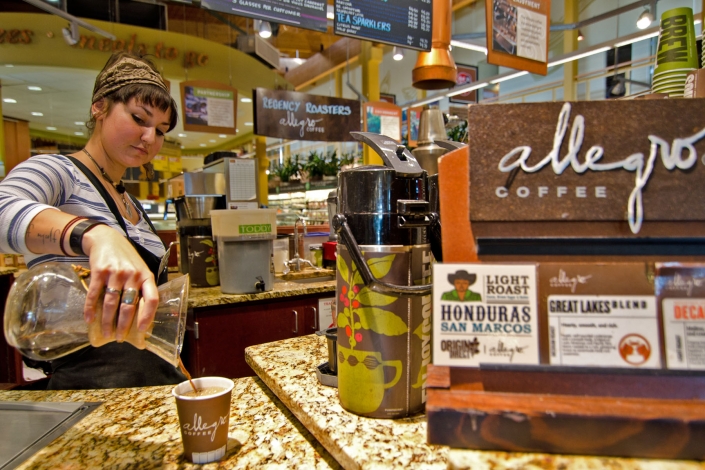The other day I was at Whole Foods and saw a customer with two young sons in the produce section. She had put some blueberries in her cart, and the boys immediately wanted to eat them. Outnumbered, she was looking for help.
She ingeniously walked over to the coffee counter (which is not where you buy food) and asked the barista if she would wash some of the blueberries so her sons could eat them. I watched on from the bananas to see how this would go – it felt like a great opportunity to help this customer out when she was in a tough situation.
The employee immediately said yes with enthusiasm and washed the blueberries. The customer was relieved and the boys were pumped. In the big picture of that day at Whole Foods, it was a tiny moment, yet it was incredibly important. Here’s why:
- If every Whole Foods employee who faces a similar request acts the same way, it creates a culture of service that extends far beyond that moment.
- If the above is true, in aggregate those moments can actually elevate the Whole Foods brand. Customers will gravitate to the brands that treat them well, surprise them with kindness and create special moments.
- The employee was asked to do something that is not, on paper, her job, and avoided every service false step along the way. I never heard, “No, I can’t,” or “That’s not my job” or “You can try asking someone else.” She enthusiastically said yes, helped the customer and likely made the rest of her day much easier.
But, these small service moments can be harder to isolate:
- It’s unlikely that anyone at Whole Foods trained that employee on whether she could or should wash blueberries at the coffee counter for customers – she just had good service instincts. (This reminds me why I sometimes am critical of training manuals – they will never comprehensively include everything we face in service.)
- If the employee would have said “No” or “I can’t,” it’s unlikely her boss or the shift manager would have ever known. The customer probably would not have complained, so it would have just been a missed opportunity.
- As service professionals, we tend to search for big opportunities to satisfy or impress clients. Doing so can blind us from the smaller opportunities in front of us every day.
Little service moments can add up, elevate a brand and arguably surpass “big” moments in terms of overall client impact. How can you find some small opportunities like this in your day?

